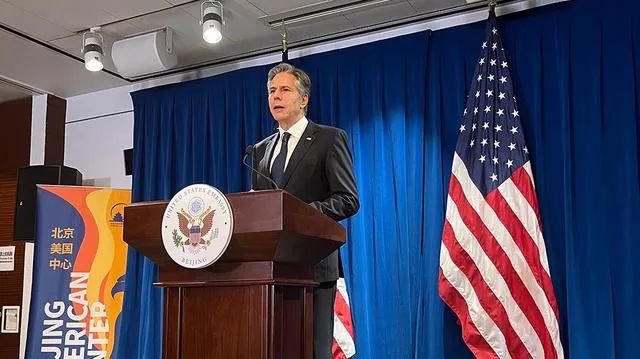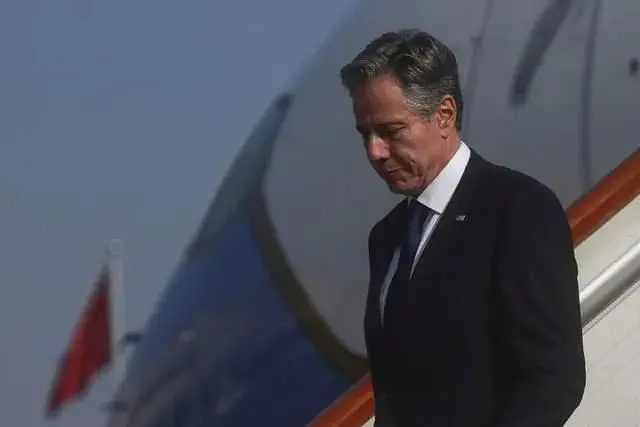By Daike, Boston-based correspondent for Asia Pacific Daily
U.S. Secretary of State Antony Blinken wrapped up a two-day trip to China on June 18-19, culminating in a meeting with the Chinese leader. Blinken was undoubtedly satisfied with this trip.
First of all, US president Biden praised Blinken's China trip. He told the media that Blinken had done a lot of things in Beijing and that U.S.-China relations were now on track. Asked by a reporter if there are progresses made, Biden said, "You don't have to ask that. You can ask how much progress has been made."
Second, Blinken was personally accomplished too. He made clear at a news conference in Beijing that the trip was a "positive step." "We're not going to be successful on every issue between us on any given day, but in a lot of areas, based on the conditions we've set for this trip, we've made progress and we're moving forward."
He summed it up in an interview with CBS as "a better start or a fresh start." Asked about specific issues such as fentanyl, people banned from leaving the country, he said that during the negotiations, specifically targeting fentanyl, he hinted that the problem could be solved. The whole interview shows that he is positive and excited. At a previous press conference, Blinken also told reporters that China had agreed to set up a joint working group on the drug issue.
Both Blinken and US State Department briefings characterized his talks with his counterparts as candid, substantive, and constructive.
The U.S. Ambassador to China, R. Nicholas Burns, said publicly that China's reception accorded Blinken great dignity.
It is worth mentioning that some American media believe that Blinken's visit is just a "performance", but Blinken's visit could help end the impasse in high-level diplomacy between US and China. Blinken's move removes some obstacles in U.S.-China relations, but how the relationship will develop remains unclear. It will take more effort and political will to restore stability and balance to the relationship. While both sides say they want to reduce friction, their strategic assessments of each other have not changed.

Scholars generally believe that the fundamental contradictions between the United States and China, including changes in the balance of power and the inevitable Taiwan issue, cannot be solved by personnel changes or a few talks. At most, it can make some adaptations in some specific operations, and make some concessions as necessary in the handling of events that do not involve core interests. The US does not have the intention to change its fundamental policy towards China.
In addition, the emphasis on building coalitions to contain China is a strategy put forward by Biden who has built a chain of allies, and Blinken and Sullivan are advocates and promoters of this strategy. There’s no sign that Biden administration is willing to make major adjustments to this strategy. Some Chinese scholars blame Trump for the deterioration of US-China relations, but in fact, the real deterioration came after Biden took office. Trump’s relationship with the State Department can be almost described as poor, and it is hard to imagine that his diplomatic directives can be well carried out. By contrast, the State Department system works hard to serve the Biden administration. Therefore, American scholars and experts believe that the policy towards China of Biden administration has further worsened the US-China relations.
In April of this year, Sullivan began to "sell" the Biden administration's new industrial economic policy, which had the implication of trying to ease relations with China. But simply by using slightly more neutral, less harsh terms to describe U.S. industrial policy, it is clear that the United States does not advocate "decoupling," and that the current policy was adopted to reduce risks. But while it was looking for some variation, it could also be understood that the White House believes that relations with China need some detente.
(ASIA PACIFIC DAILY)
 简体中文
简体中文

